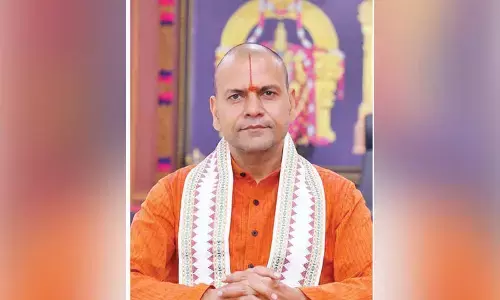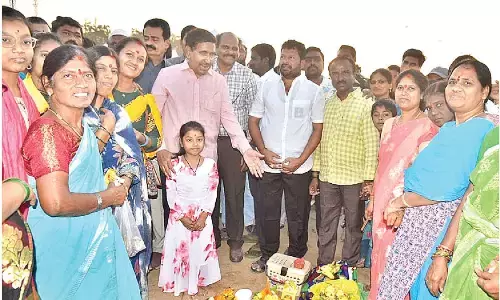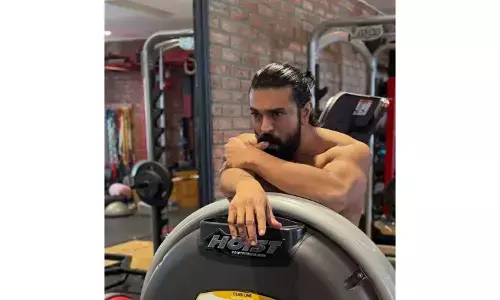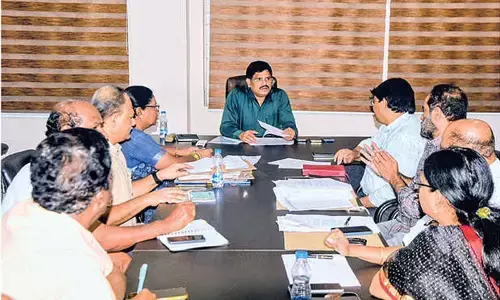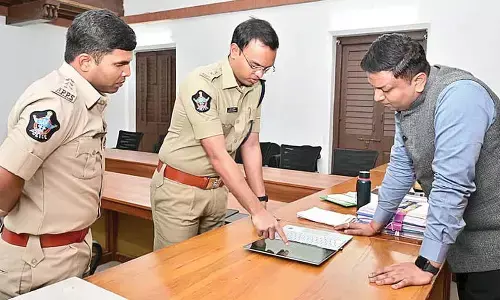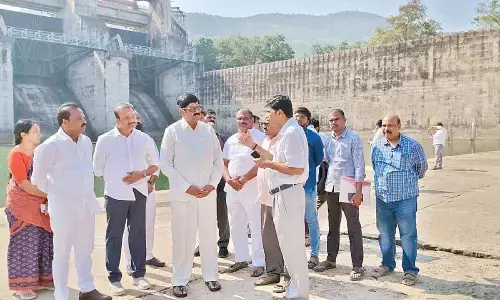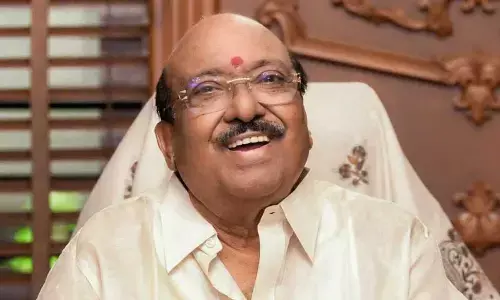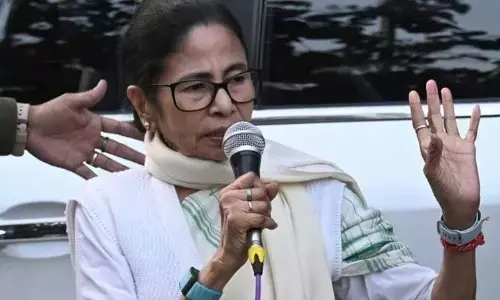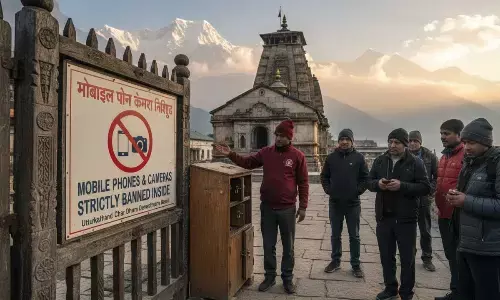Dhrupad in my life

Sunita Amin: Dhrupad in My Life. Ustad Zia Fariduddin Dagar, the scion of Dagar vani always used to say that there are two forms of music; ‘Desi Sangeet and ‘Margi Sangeet’.
Dhrupad is the most ancient form of singing. It is like yoga in music. It takes, hours, days and years to get every nuance of a raga in Dhrupad style and it can be mastered only through continous riyaz and a lot of patience, says the popular Dhrupad singer Sunita Amin
Ustad Zia Fariduddin Dagar, the scion of Dagar vani always used to say that there are two forms of music; ‘Desi Sangeet and ‘Margi Sangeet’. ‘Desi Sangeet’ is more for entertainment and there is fast tempo and also popular lyrics. ‘Margi Sangeet’ is the traditional music which encompasses atleast two hours to bring in the flavour of a ‘raga’, all the more in Dhrupad tradition.
Sunita Amin, student of Ustadji was in Hyderabad to give a Dhrupad recital for ‘Surmandal’. She speaks about how Dhrupad changed her life.

How did ‘Dhrupad’ happen in your life?
During childhood, I was very much interested in classical dance and learnt Bharatnatyam from Padmini Rao in Bangalore. I found it was very important to also learn carnatic music and detailed ‘Abhinaya’ to make my dance better. Later, I also got the opportunity to dabble with Contemporary dance when I studied in the US. It was by chance that I attended one of the programs of Ustad Bahauddin Dagar that I got drawn towards the richness of ‘Dhrupad’ style of vocal rendition.
Tell us about the ‘Dhrupad Gurukul’ established in Jaipur?
After initially learning from Ustad Bahauddin Dagar, I moved on to take guidance from Ustad Zia Fariduddin Dagar. I have learnt from Ustadji in the Guru-Shishya parampara for nearly eight years. He hails from Jaipur which has been the focal point of Dhrupad for more than 400 years in India. One day, Ustadji mentioned that he was going to lay the foundation stone for a ‘Gurukul’ to be set up in Jaipur. At that time, I was not sure of anything but finally, this foundation stone was destined to be placed on the plot of land which was bought for constructing our home in Jaipur. And the rest is history.
Does ‘Dhrupad music’ help one in life?
I have learnt a lot about keeping ‘patience’. One needs to explore the ‘Raga’. When we give a concert, the focus should be on ‘Upaj’ i.e. ,the way of bringing out the intricate traditional nuances of a raga.‘Shastriya Sangeet’ is not a fashion. It is an everlasting experience. Today, Dhrupad in my life is for personal satisfaction. It is very important that the commercial aspect does not come into our mind.
What is your message to the present generation?
It is very important to share knowledge. It is also equally important for all musicians to listen to each other and interact as a musical family.
What is the future of Dhrupad music?
As an oral tradition, Dhrupad has been continuously passed down through 20 generations in the Dagar Family. Dhrupad’s emphasis is on the purity of Swaras, delicate use of Shrutis and improvisation in complex Talas. Dhrupad was initially called 'Prabandh' and later was developed into a form by Raja Man Singh Tomar of Gwalior.
Dhrupad was nurtured by the royalty in Delhi, Jalandhar, Patiala, Jaipur, Ajmer, Alwar, Udaipur, Agra, Indore, Rampur and Varanasi. Today, there is no interest in the common public towards Dhrupad form of music. The ‘Durbars have vanished and the royal patronage is nowhere to be seen. ‘Dagar Vani’ is hardly known to the people and the number of teachers has also gone down. Enthusiastic students find it very difficult to reach out to a Guru.
What are your future plans?
‘Riyaz’ is a continuous process and there is a lot to get involved in the rich tradition of Dhrupad. This can take years and the determination is always there. Now slowly, I can feel that I am able to understand each ‘swara’ and ‘tala’. I plan to organise workshops on Dhrupad and an annual festival. I look forward to giving live music performances whenever time permits.








